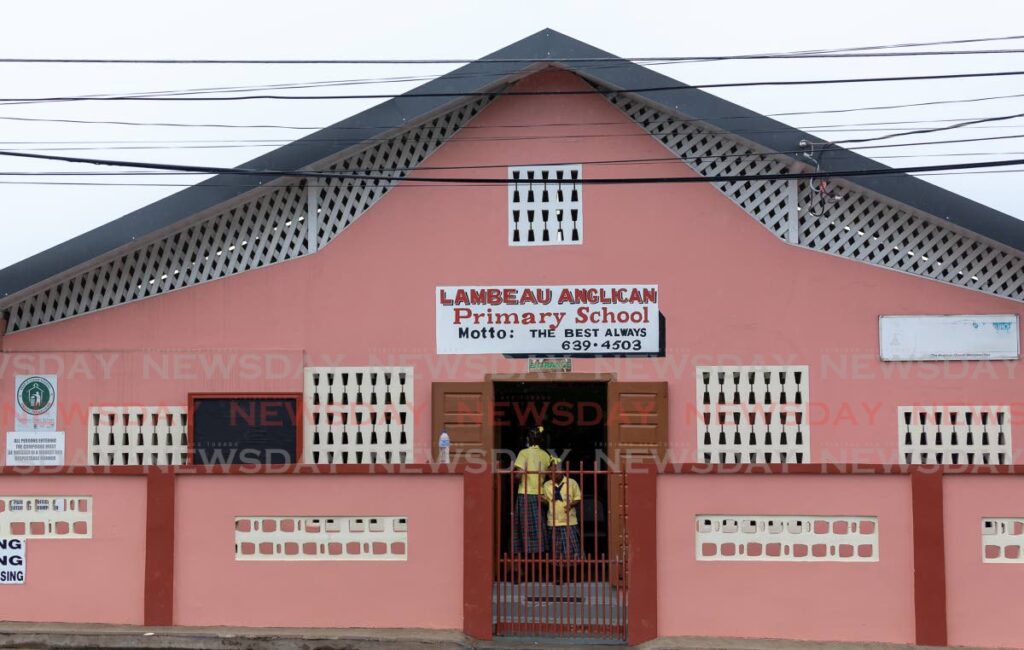Growing opportunities, 1870-1935

Dr Rita Pemberton
The social state of Tobago is best revealed by the extent to which identifiable progress can be observed in critical areas, namely education, employment, housing and living standards for the major element of the population.
These, however, did not feature on the agenda of the administration, which remained obsessed with the effort to wring profits out of a dying sugar industry. For both the rulers and the ruled, this was a period of challenge which affected social conditions during the last three decades of the 19th century.
The challenge for the planting community and their supporters in the administration was how to overcome the depression in the sugar industry. Its problems were related to falling market prices, increased competition from new producers, high production costs for poor-quality sugar, failure to modernise the industry and the lack of investor and imperial interest in Tobago.
Yet the planting community sought to deal with problems solely through local measures, specifically labour. In face of the strictures which confronted the industry, the priority of the administration centred on the impossible task of its salvation, a process perceived to centre on labour. Having failed in bids to obtain imperial aid and support for immigrant labour, emphasis was placed on the local labour force.
The African population was expected to remain the workforce on the estates and seen as the mechanism to resolve the problems they faced. The solution was to use force to make it difficult for labour to become otherwise engaged, and the policy was land deprivation, low wages and poor working conditions. These became the chains used to try to bind workers to the estate.
The challenge for the freed population was how to overcome the impediments intended to restrict them to the status of plantation labourers permanently. The freed Africans resisted, and sought to achieve their ambitions, which were to remove themselves from plantation control and gain the freedom to seek to achieve their other aims.
Their first step was to house themselves, preferably on their own property; but, given the challenges with land owning, rented property was the available option. Across the last three decades of the 19th century, housing was increasingly made up of single dwellings, and there was a marked reduction of residency in estate barracks, which were primarily used to house migrant workers.
The small, overcrowded houses were bereft of access to potable water, drainage or sanitation services and, in many cases, access roads. The standard of housing was low, but their numbers continued to increase, and by the start of the 20th century, individual houses, the pride of the owners, predominated and barracks were scarce.
For the freed Africans, education assumed importance as the means to find other employment than that on the estates. Primary schools were established by the Anglicans in all districts, while the Moravians concentrated on the Leeward and Middle districts and Methodists on the Middle and Windward districts.
While school places were available between the 1870s and 1900, enrolment numbers were extremely low, with the rate for girls significantly lower than that for boys.
Aside from enrolment, the major problem was actual attendance, which was far lower than the enrolment figures would suggest. School attendance was determined by the needs of the family. Some parents preferred to send the children to learn a trade, from which they could start earning faster and earn more in the long run.

Girls were required to assist in household chores, such as helping to care for smaller siblings or sick parents, which assumed primacy for the family. Particularly on Mondays, the popular washing day, by the river, there was a marked fall in the number of girls at school.
Similarly, boys were required to assist in gardening, making their school attendance irregular, and on Fridays, they had to lend a hand preparing produce for the market.
Irregular school attendance affected literacy rates. The highest rates were found in and around Scarborough, where people found a wider range of employment possibilities; hence regular attendance was more commonplace. The next highest rate occurred in the Leeward areas, where alternatives were on the increase; and the lowest levels in the Windward districts, where plantation labour remained the main employment available to the population.
After 1900, there was a marked increase in school enrolment for both boys and girls because school access was available. There was also an increase in attendance, which was prodded by the efforts of the churches and was reflected in an increase in the literacy rates, which were higher for females than for males.
The signal development of the 20th century was the ability of a significant section of the population to become landowners, breaking the chain of restriction which planters sought to impose during the latter part of the 19th century.
This facilitated the expansion of food cultivation, which was buttressed by the increased incomes of those engaged in the cocoa and coconut industries and the reduced tendency to have to keep children at home to assist with household chores and family economic activity.
In addition, the establishment of a secondary school in 1925, the need for staff in the administrative sector, schools, and the developing commercial sectors provided more non- plantation employment opportunities and stimulated an increase in school enrolment and attendance.
By 1935, there were indications that the quality of life for the population of Tobago was changing. There were improvements in education, changes in employment patterns and more families owned their homes. While the population continued to be deprived of essential services such as water, electricity, health care, proper roads and communications, social conditions centred on land and home ownership and education were improving, and the island was feeding itself.


Comments
"Growing opportunities, 1870-1935"